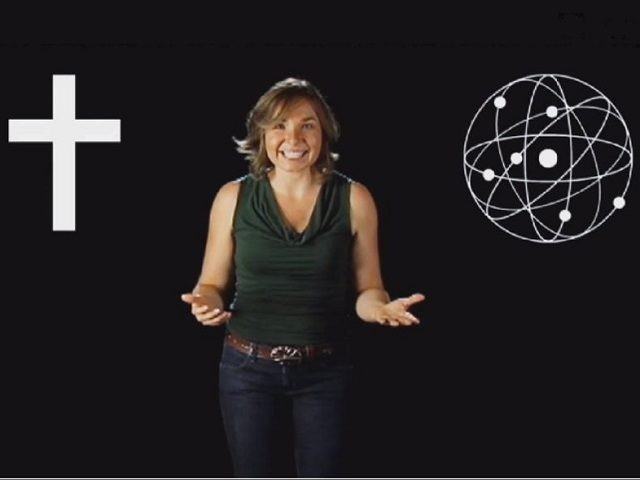Hailed as “a climate change evangelist,” Katharine Hayhoe believes that her Christian faith obliges her to preach the word about climate change, especially to climate skeptics.
An atmospheric scientist and evangelical Christian, Hayhoe is a firm believer in manmade climate change and recently addressed a UN-sponsored climate change conference in Edmonton, Alberta, on the woes that await the human race if global warming is not curbed.
Hayhoe teaches political science at Texas Tech University and is also the CEO of the consulting firm ATMOS Research and Consulting, which specializes in preparing organizations of all sorts to face the impact of anthropogenic climate change.
Acknowledging her life both as a Christian and a climate change believer is “like coming out of the closet,” Hayhoe has said.
“I study climate change because I think it’s the greatest humanitarian crisis of our times,” she told Reuters. “It exacerbates poverty and hunger and disease and civil conflicts and refugee crises.”
Climate change activists have warmly welcomed Hayhoe into their fold, hoping that she will be able to make headway in convincing her fellow evangelicals—many of whom are climate-change skeptics—that manmade climate change is real.
While a majority of evangelicals continue to question the existence of human-caused climate change, Hayhoe is not completely alone. Groups like the Evangelical Environmental Network, the Evangelical Climate Initiative, and Young Evangelicals for Climate Action have adopted similar programs.
Her street creds are good, having converted her skeptical evangelical husband to belief that human activity is driving global warming in a patient process lasting two years.
At the same time, Hayhoe reportedly took no questions from climate change skeptics during her talk at the Edmonton conference.
TIME magazine named Hayhoe to their list of the 100 most influential people for her work in defending climate change, in which actor Don Cheadle praised her as “a smart person who defies stereotype.”
Hayhoe thinks that American’s resistance to climate change has more to do with “the perceived solutions” such as taxes, government legislation, and loss of personal liberty than with the theory of climate change and its causes.
In January of this year, author Kenneth Richard conducted a broad survey of climate change literature for 2017 and found that the alleged “consensus” behind the dangers of anthropogenic global warming is not nearly as settled among climate scientists as people imagine.
The study revealed that during the course of the year 2017, at least 485 scientific papers were published that in some way questioned the supposed consensus regarding the perils of human CO2 emissions or the efficacy of climate models to predict the future.
According to Richard’s analysis, the 485 new papers underscore the “significant limitations and uncertainties inherent in our understanding of climate and climate changes,” which in turn suggests that climate science is not nearly as settled as media reports and some policymakers would have people believe.
The papers questioned everything from the relative role of natural mechanisms in changes to the climate system vis-à-vis increased CO2 concentrations, the allegedly “unprecedented” nature of modern climate phenomena such as warming, sea levels, glacier and sea ice retreat, and the efficacy and reliability of computer climate models for projecting future climate states.
For his part, Pope Francis has declared that humanity is currently experiencing a “climate emergency,” while calling climate change skepticism “perverse.”
Follow Thomas D. Williams on Twitter Follow @tdwilliamsrome

COMMENTS
Please let us know if you're having issues with commenting.